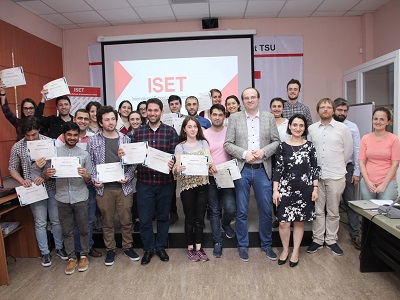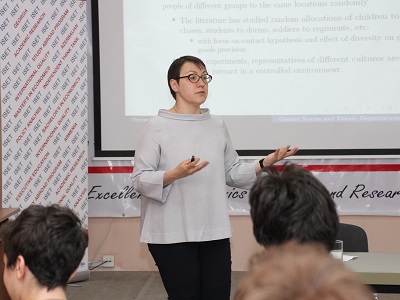ISET hosts “Building capacity in modern data analysis in Georgia” Data Hackathon
- Details

On 27-28 May, ISET organized a Data Hackathon in the framework of the “Building Capacity in Modern Data Analysis in Georgia”, a project being carried out with Tartu University.
The attending students grouped into four teams, each of which discussed different problems and tried to find different solutions to a specific issue. Overall, the hackathon was an interesting practice experience with plenty of learning opportunities.
Each team was led by two students from the MDA Concentration. The participants were provided data to work with, and also benefited from the help of mentors who navigated group works.
The datasets were as follows:
Effects of the past: how Stalin’s deportations have affected gender norms
- Details

It may appear as though the subject of gender and gender norms is a fairly recent socio-political phenomenon – particularly in Eastern Europe and Central Asia – but it does, in fact, have a longer history than might initially be thought, even in the former Soviet Union; its effects can still be felt and observed today.
Dr. Ekaterina Zhuravskaya of the Paris School of Economics visited ISET on May 27 to discuss the topic. ‘Diffusion of Gender Norms: Evidence from Stalin’s Ethnic Deportations’ delved into the effects of mass Soviet deportations of populations from their homes in the western parts of the Soviet Union to far-flung areas of Central Asia and Siberia. In excess of two million people were evicted from their homes and relocated, a horrifying process which nevertheless altered the perceptions of gender norms in the new places they were forced to call home.










